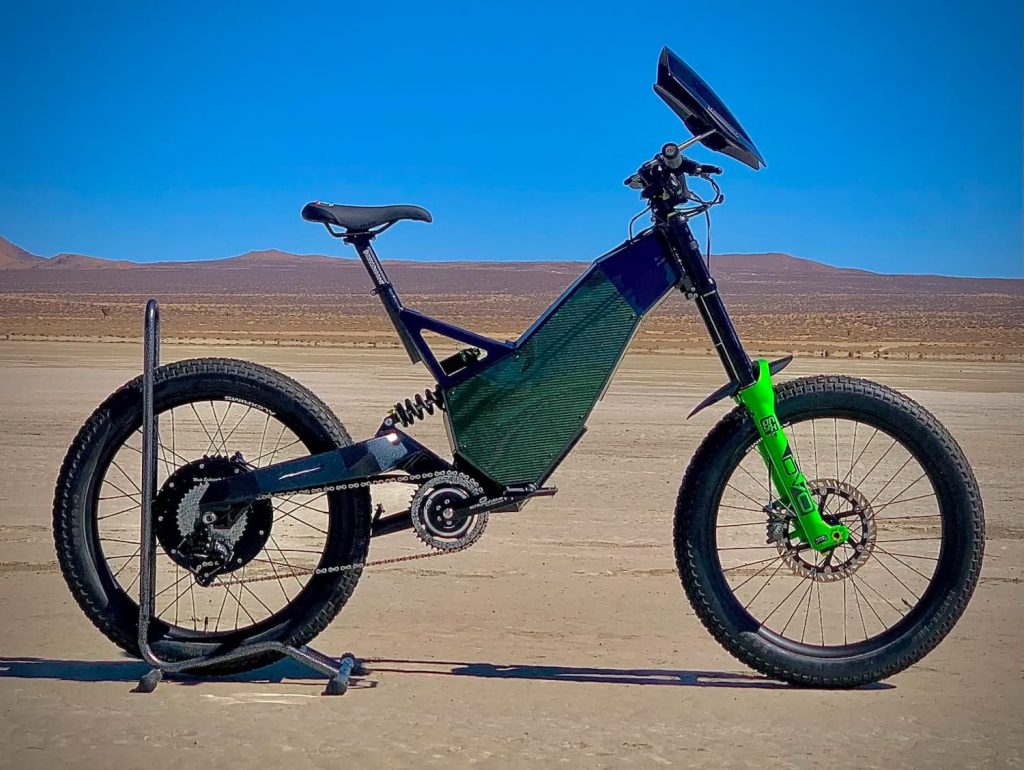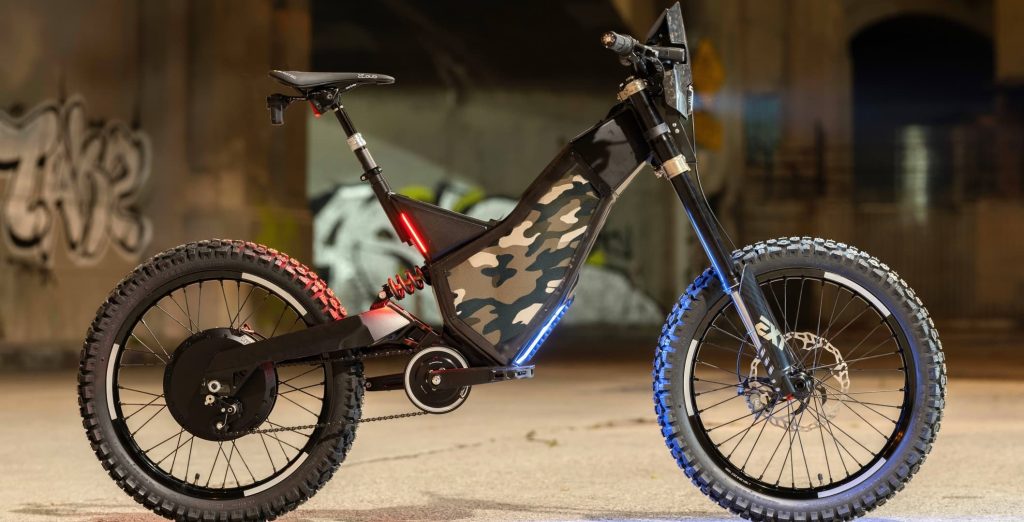Los Angeles-based electric bike brand Hi-Power Cycles has announced the opening of a new “defense division” known as HPC Defense. To kick things off, they’ve unveiled an 80 mph (130 km/h) military electric bike as one of the division’s first products.
Theoretically speaking, electric bicycles in the US are limited to a maximum speed of 28 mph (45 km/h). But that’s just the civilian limit. If you’ve got the clearance to buy HPC Defense’s new Revolution W electric bike, you’ll be capable of exceeding that speed several times over.
The Revolution W is said to be fully manufactured in the US and sports some serious power, which the company says makes it the “fastest factory military-grade e-bike in the world.”
A 10,500-watt motor can send the bike flying at speeds of up to 80 mph (130 km/h). And if you’re wondering if the bike pedals well at such high speeds, you may be surprised at the answer.
“Thanks to the German-made Schlumpf High-Speed Drive, you are able to achieve pedal speeds over 50 mph,” explained the company. “With a click of your heel, you can enable the 2.5x overdrive feature and maximize your efficiency at high speeds.”
The Revolution W claims a throttle-only range of up to 100 miles (160 km), though that’s almost certainly measured at a lower average speed.
And just like you’d expect of any overlanding-style electric bike, the Revolution W has extremely long range travel suspension. According to the company, the bike features 9″ of rear suspension travel and 8″ of travel in the front.
There’s no word on what the bike costs, though consider that it appears to be wearing an $1,800 to $2,000 fork, depending on the loadout, it’s likely the kind of lofty figure you’d expect to see on a DoD budget line item.

Along with the establishment of HPC Defense, the company also announced the onboarding of new Advisor & Interim President/CEO Bryan Maizlish.
As a public sector industry veteran, Maizlish formely held leadership positions within divisions at Lockheed Martin, Northrop Grumman/TASC, Jacobs Engineering (Jacobs), and Human Security (HUMAN), a Goldman Sachs portfolio company.
Military e-bikes are’t exactly new, and in fact are becoming more common than ever. The Russian invasion of Ukraine has propelled military e-bikes into the spotlight multiple times as Ukrainian defenders have creatively repurposed off-road electric bikes for transporting anti-tank missle teams as well as inserting sniper teams.
Even earlier, other militaries have long emplyed electric bicycles for patrol duties and tactical operations.
Compared to electric or combustion-powered dirt bikes, electric bicycles have the advantage of significantly lower weight and increased manueverability. And while it likely wouldn’t be very fast going, the pedals also serve as an alternative propulsion method if the bike ever runs out of fuel.

Electrek’s Take
I’m going to go out on a limb here and say that, being in the rare overlap between veterans and e-bike journalists, I’m one of the few people who has had the unique experience of riding an e-bike as part of my service. Outside of novel issues like trying to keep your flash suppressor out of the spokes, it’s hard to beat the advantages of e-bike mobility for a soldier.
The ability to manuever both quickly and quietly through rough terrain is something thing that bests both combustion-powered dirt bikes and good-old-fashioned humping it on foot. Anyone who has ever completed a 12-mile ruck march is probably drooling over a bike like this.
To be realstic, these types of extremely high speeds are unlikely to be used off-road though, at least not outside of long, relatively smooth and straight dirt roads. But these levels of power and torque are certainly useful for off-road terrain and mountainous areas with steep inclines, not to mention the extra weight usually carried by soldiers. And having the extra speed available certainly isn’t a bad thing, as you never know when you’re going to need to leave in a hurry.
FTC: We use income earning auto affiliate links. More.



